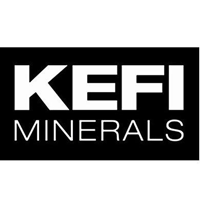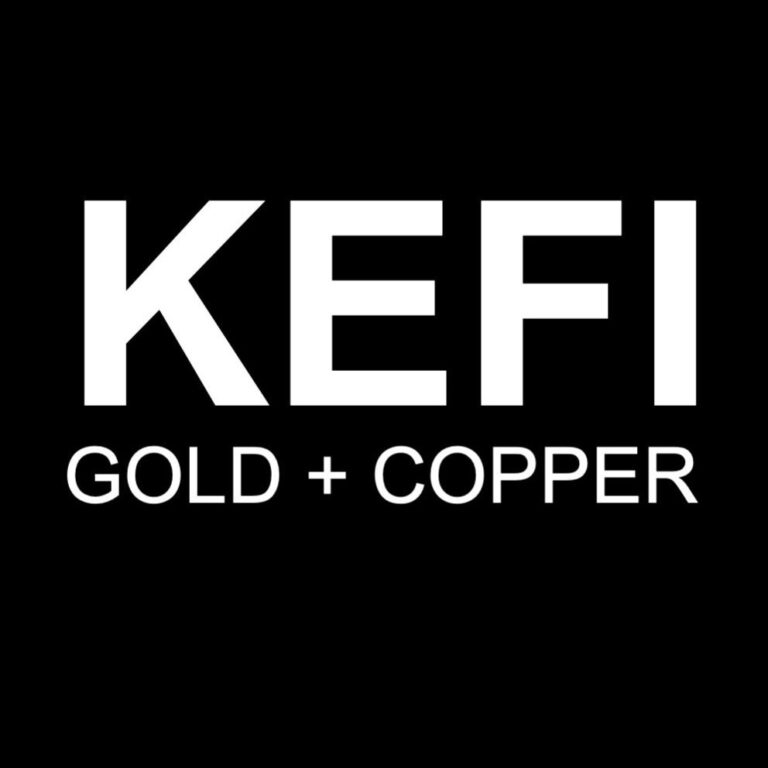KEFI Minerals plc (LON:KEFI), the gold exploration and development company with projects in the Kingdom of Saudi Arabia and the Federal Democratic Republic of Ethiopia, has today provided an operational update for the period from 1 July 2017 to 30 September 2017.
This quarterly operational report encompasses the activities of KEFI Minerals (Ethiopia) Ltd (“KME”) and Tulu Kapi Gold Mines Share Company Limited (“TKGM”) in Ethiopia and Gold & Minerals Ltd (“G&M”) in Saudi Arabia. Some of these matters have been reported previously.
Commenting, KEFI’s Executive Chairman, Harry Anagnostaras-Adams, said: “It has been an exceptionally busy quarter, pulling together our project funding for the Tulu Kapi Gold Project in Ethiopia for the closing planned for this year. We are pleased to have now also incorporated plans for extra processing capacity and for the drilling work required to add additional resources.
“In Saudi Arabia, we await the announcement of the new regulations intended to overhaul the mining industry with a view to facilitating growth and making it the third pillar of the Saudi economy. In the meantime KEFI has upgraded its portfolio and tenure.
“This is a transformational time for KEFI as the team works hard, together with our partners, to build KEFI during the next two years into a +100,000 oz gold producer. At a gold price of $1,250/oz, the first three production years’ projected net free cash flow per annum (after debt service and tax) exceeds the Company’s current market capitalisation.
“And our existing project pipeline in Ethiopia and Saudi Arabia provides the opportunity to build a production base of 180,000 oz of gold per annum during Tulu Kapi’s first three production years.”
Tulu Kapi Gold Project, Ethiopia
· KEFI received all of its VAT refund in accordance with the agreement entered with the Government of Ethiopia in 2014 upon assuming control of the Tulu Kapi Gold Project (the “Project”).
· Ethiopia has recently been named by the World Bank as the highest growth country in the world, improving its ranking within the top 10 growth countries where is has been for 15 years running.
· KEFI and the Government of Ethiopia formed TKGM as the project company for developing the Project. Two of the six Directors of TKGM are representatives of the Government of Ethiopia – an endorsement of the joint commitment to developing the gold sector, starting with the Project which ranks as a priority in the Government’s Growth and Transformation Plan.
· The Ethiopian Government lifted the State of Emergency restrictions imposed in October 2016. During the State of Emergency, many improvements to governance were made by the Government, which used its executive powers to create independent review agencies and transparent procedures. Whilst day to day life in Ethiopia was largely unaffected and KEFI’s activities specifically were unaffected throughout, its lifting is positive.
Project Funding
· Implementation of the preferred finance plan was triggered on 17 July 2017 upon signing a detailed Heads of Terms and Mandate with Oryx Management Limited (“Oryx”) with the goal of closing the funding package this year, which remains on track.
· Drafts of documentation have either been agreed or are advancing as planned. Oryx has submitted its draft financing agreement to the Ethiopian authorities for approval.
· Oryx has appointed a placing agent for the issue of listed bonds and is forming its Finance Special Purpose Vehicle which will be the bond issuer.
· The agreements with Oryx, the Government, Ausdrill and Lycopodium are being documented in detail for approval by the counterparties and the regulators.
· The effect of these arrangements is that KEFI will have reduced the residual capital requirement for development to proceed to approximately US$20 million, as compared with approximately US$289 million (adjusted by KEFI from the then-published US$235 million to include assumed working capital and financing costs) when KEFI assumed Project control in 2014. The key arrangements that have reduced the residual requirement are:
o Having first expanded the resource base by some 50% and re-designed the open pit, KEFI then introduced targeted selective mining to down-scale the mining operation and improve head-grade:
§ total tonnage movement has been reduced from the 2012 DFS 160 million tonnes (17Mt of ore and 143Mt of waste) to 140 million tonnes (15Mt of ore and 125Mt waste).
§ head grade has been increased from 1.8 grammes per tonne (“g/t”) to 2.1g/t.
o introducing contract mining, whereby Ausdrill will fund the mining fleet, which transfers some US$50 million of project capital into operating costs which is paid per tonne delivered.
o arranging project funding with Oryx (debt-style) and the Government of Ethiopia (project-equity):
§ Oryx proposes to fund all on-site plant and infrastructure (other than that provided by the Mining Contractor) up to a limit of c. US$100 million as well as transaction expenses and debt-service costs during the 30-month grace period for construction and start-up of up to c. US$40 million.
§ The Government proposes to fund all off-site infrastructure up to a limit of US$20 million.
§ KEFI guarantees that it will meet any shortfall of TKGM funding for the development of the Project as required. The precise amount of such funding (if any) is expected to become clear after taking into account actual progress as regards cost and schedule over the 2018-2019 construction period.
· Having finalised the structuring of the proposed project finance, KEFI can now move to arrange the residual capital requirement. Key considerations include the following:
o Whilst the Company has sown the seeds for an institutional equity raising at the parent company level, KEFI can now bring to a head its discussions with potential Project level, TKGM, investors.
o Additional project-level equity investment may minimise the dilution of KEFI shareholders’ beneficial interests. A project-equity transaction on the same terms as with the Government would imply a project valuation of c. US$100 million and KEFI would expect to retain an equity ownership interest in the order of 55% in the Project.
o KEFI is in discussion with several Project level investors.
o KEFI has deliberately not yet committed to any product offtake arrangements as that aspect may now form a useful part of arranging the residual funding requirement.
· The financing remains subject to completion of due diligence, regulatory approvals and execution of binding documentation.
Project Plans
· Oryx has agreed to expand its proposed finance facility from US$135 million to US$140 million as part of the set of arrangements to allow for an increase in ore processing capacity from 1.5 to 1.7 million tonnes per annum (“Mtpa”) to 1.9 to 2.1 Mtpa, with the upper and lower limits depending upon the hardness of the ore.
· Oryx’s proposed support is welcome as the increased processing capacity has always been sought after, but has been a matter of keeping the cost and funding thereof within manageable levels. Taking the plant capacity back to that proposed in the 2012 DFS will now provide KEFI (through project company TKGM) with the opportunity to achieve the following:
o Mitigate against the build-up of ore stockpiles to what otherwise would have exceeded two years of production.
o allow the flexibility to mine at a faster rate as and when warranted in the open pit as well as from what we expect will come from satellite deposits which have been the subject of further positive evaluation recently.
o cater for underground ore from the already reported underground resources.
· The capital required for the capacity increase is being minimised by offsetting against savings in other aspects of the construction budget. Notably, KEFI, Lycopodium and Oryx have agreed an organisation plan which allows us to convert the arrangement with Lycopodium from a (necessarily more expensive) fixed price lump sum arrangement (EPC) to an open book cost-based arrangement with incentivisation built around target cost and schedule (incentivised EPCM). One organisational aspect is the installation of an added layer of management control via the appointment of an independent Client Representative Engineer to oversee construction under guidance from KEFI’s project management team, and to independently certify progress claims.
· The community preparations progress to the stage where all data has been tabled so that the Government can trigger the resettlement this year, synchronised with the closing of TKGM’s development finance package.
Gold & Minerals Ltd, an incorporated joint venture with 60%-partner ARTAR, Kingdom of Saudi Arabia
· New Regulatory Regime to be announced by the Saudi Government: The newly created Energy, Industry and Mineral Resources Ministry is preparing new mining policies and regulations – intended to overhaul the mining industry with a view to facilitating growth and making it the third pillar of the Saudi economy.
· Portfolio of Licence Applications: G&M awaits these regulatory clarifications and, in the meantime, has upgraded its portfolio.







































